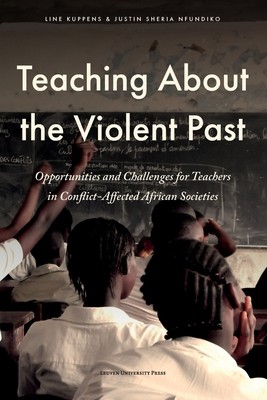
- We will send in 10–14 business days.
- Author: Line Kuppens
- Publisher: Leuven University Press
- ISBN-10: 9462704724
- ISBN-13: 9789462704725
- Format: 15.6 x 23.4 x 1.3 cm, mīksti vāki
- Language: English
- SAVE -10% with code: EXTRA
Reviews
Description
Education plays a vital role in fostering reconciliation and teaching peace in conflict-affected societies. Conflict-history education, in particular, helps to replace fear and hatred with mutual understanding. While peace education has been explored across sub-Saharan Africa and beyond, curricular reforms often overlook teachers--despite their key role in achieving success.
Building on insights from education sciences, sociology, political sciences, memory studies and social psychology, this book introduces a novel and interdisciplinary framework to analyse secondary school teachers' engagement with conflict-history education, using both qualitative and quantitative methods. It focuses on three distinct locations--Kenya, Côte d'Ivoire, and the Democratic Republic of Congo--that differ in the intensity of violence experienced and the time elapsed since conflict ended.
This practice-oriented book aims at identifying teachers' needs to feel confident and competent in driving reconciliation in their classrooms and provides actionable policy recommendations and teaching strategies to support them in this essential role.
With contributions from Louis-Gervais Adomon Anoma, Mary Kange'the.
EXTRA 10 % discount with code: EXTRA
The promotion ends in 23d.04:25:28
The discount code is valid when purchasing from 10 €. Discounts do not stack.
- Author: Line Kuppens
- Publisher: Leuven University Press
- ISBN-10: 9462704724
- ISBN-13: 9789462704725
- Format: 15.6 x 23.4 x 1.3 cm, mīksti vāki
- Language: English English
Education plays a vital role in fostering reconciliation and teaching peace in conflict-affected societies. Conflict-history education, in particular, helps to replace fear and hatred with mutual understanding. While peace education has been explored across sub-Saharan Africa and beyond, curricular reforms often overlook teachers--despite their key role in achieving success.
Building on insights from education sciences, sociology, political sciences, memory studies and social psychology, this book introduces a novel and interdisciplinary framework to analyse secondary school teachers' engagement with conflict-history education, using both qualitative and quantitative methods. It focuses on three distinct locations--Kenya, Côte d'Ivoire, and the Democratic Republic of Congo--that differ in the intensity of violence experienced and the time elapsed since conflict ended.
This practice-oriented book aims at identifying teachers' needs to feel confident and competent in driving reconciliation in their classrooms and provides actionable policy recommendations and teaching strategies to support them in this essential role.
With contributions from Louis-Gervais Adomon Anoma, Mary Kange'the.


Reviews